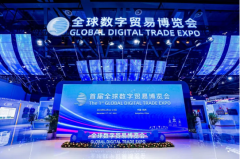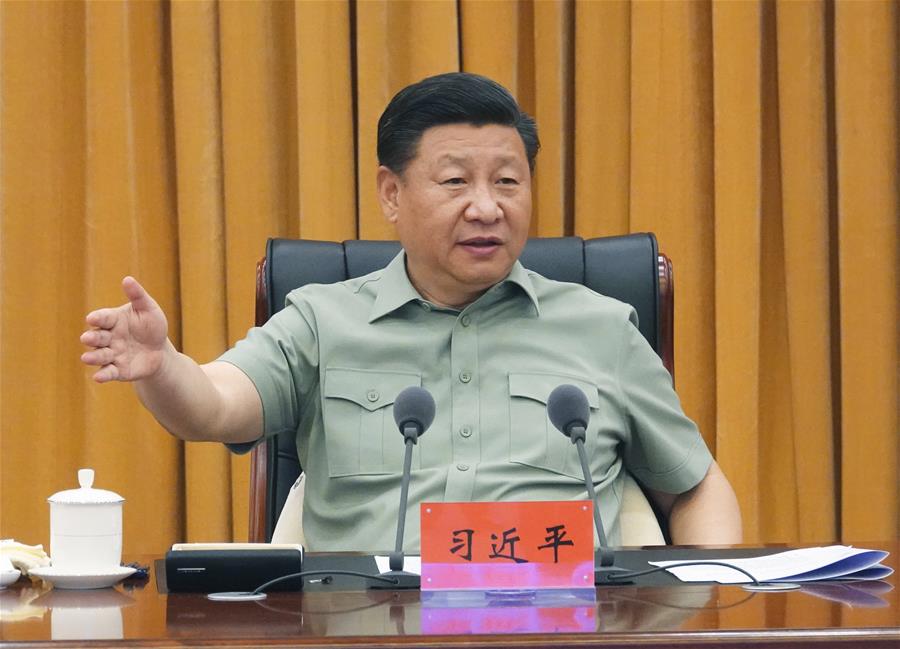Smart solutions tackle urbanization problems

Visitors look at products of Ping An Technology at the Global Mobile Internet Conference 2019 in Guangzhou, Guangdong province. [Photo provided to China Daily]
In the kitchens of countless restaurants in Shenzhen, Guangdong province, an intelligent "eye" monitors chefs as they prepare dishes. When it detects any irregularity in the process, it sends out alert message to city regulators.
It is just one example of smart city technologies working to help improve people's everyday safety and enhance the efficiency of government departments.
The provider of such services in restaurants is Ping An Insurance (Group), China's biggest insurer by market value, which is pouring significant resources into smart city projects amid efforts to transform itself into a technology-driven financial conglomerate.
"With rapid urbanization in the country, Chinese cities are facing challenges such as insufficient resources, unsustainable development and incompetent governance," said Chen Jialin, Smart City Development Office secretary-general at Ping An.
"That is where smart city solutions can help. With the help of advanced technologies, we can help tackle the emerging problems brought by rapid urbanization and build a better and more efficient society," Chen said.
Since the launch of the food safety technology at Shenzhen's market supervision department, more than 11,000 restaurants have been included, covering all big catering enterprises.
Ping An's push comes at a time when China is making great efforts to develop smart cities in a bid to build itself into a technology powerhouse. More than 700 Chinese cities have so far rolled out the technology or are formulating plans to make their cities "smart".
Research firm MarketsandMarkets said the Chinese smart city market is expected to grow from $30.4 billion in 2018 to $59.9 billion by 2023, representing a 14.5 percent average annual growth.
While China is the biggest market in the Asia-Pacific region in terms of smart city development, the Asia-Pacific region is projected to become the main revenue contributor to the global market, it said.
Ping An said it has extended its smart city projects to more than 100 Chinese cities and some countries and regions along the Belt and Road Initiative such as the Philippines and Italy, covering a wide range of areas, including governance, transportation, education, healthcare, environmental protection and law.
In the transportation sector, an appointment management platform was set up in Shenzhen using artificial intelligence and big data technologies to help ease traffic congestion in some of the city's most popular tourist sites. With a daily visit quota set for the areas, travelers need to make an appointment online before driving there.
The project has been running successfully, with traffic congestion being reduced by 52 percent compared with previous times and traffic accidents declining significantly.
"We aim to play a leading role in this field and we are able to achieve that with our unique advantage of having over 30 years of experience in the financial industry and owning massive data," Chen said.
Ping An is not the only player that has set its eyes on the field. Other tech giants such as Tencent, Huawei and Alibaba are also competing to grab a piece of the action.
Huawei, for example, is providing smart city solutions for more than 200 cities in over 40 countries and regions across the world.
While there is great market potential to be tapped, some experts have also raised concerns.
Pu Qinglu, partner at Deloitte, said privacy issues are a challenge that need to be addressed to push forward with smart city development.
When cities become very smart with sensors everywhere, protecting individual privacy becomes a challenge and there should be policies and regulations to tackle these problems, Pu said in an earlier interview.
Only when all these issues are tackled can the country embrace full development of smart cities, she said, predicting that this might be 10 to 20 years down the road.
















